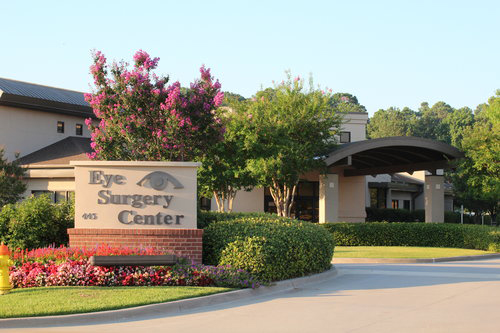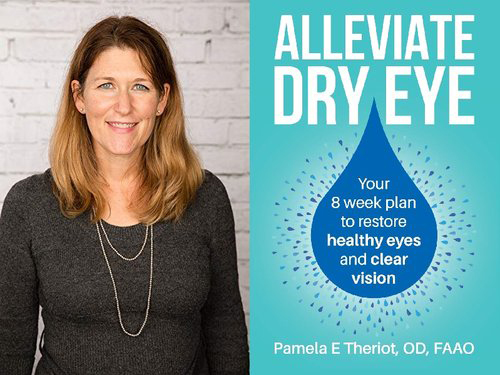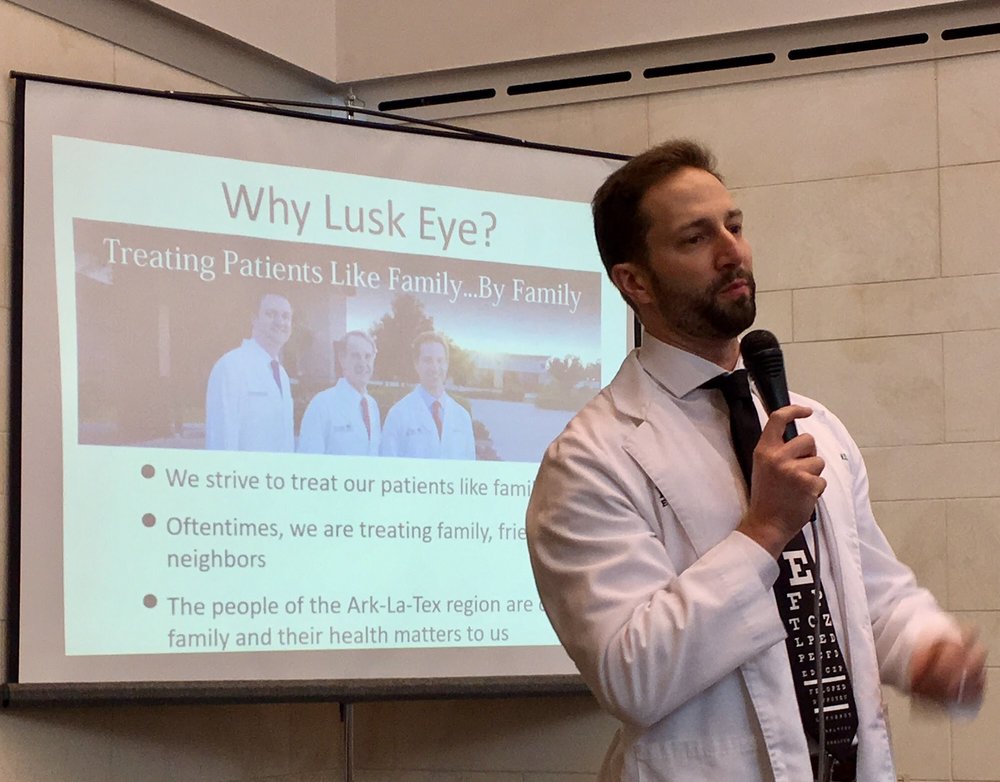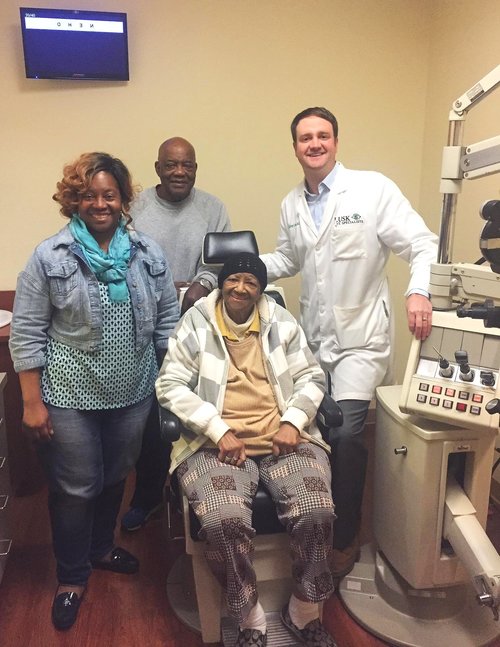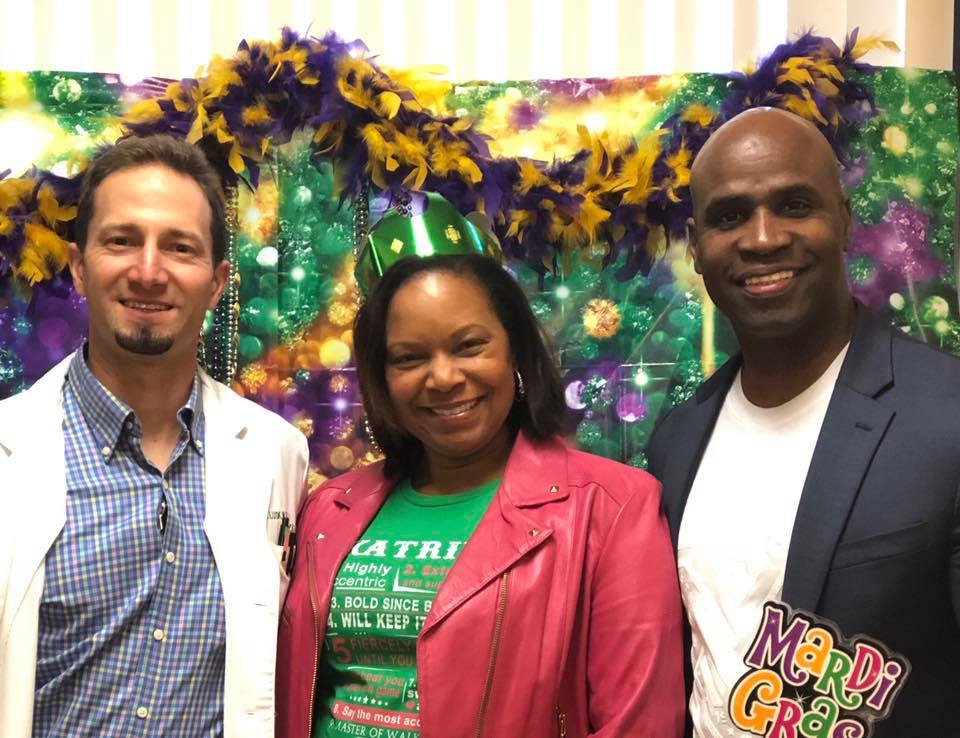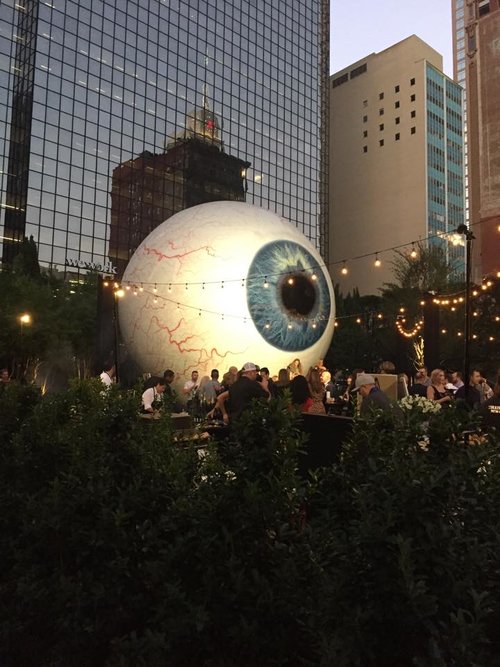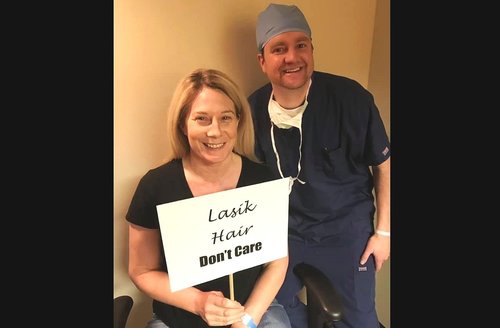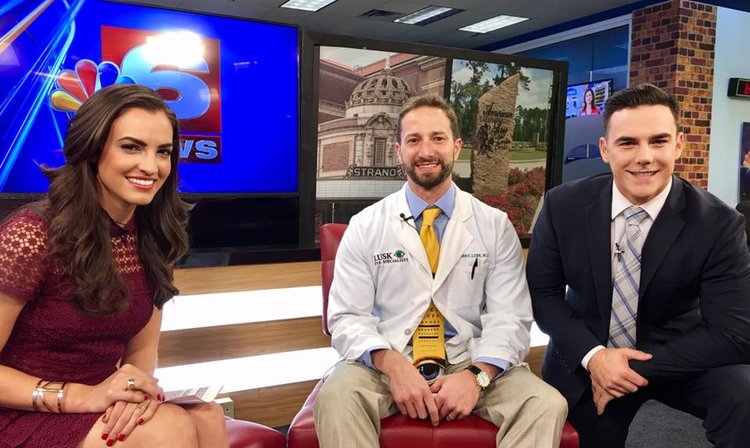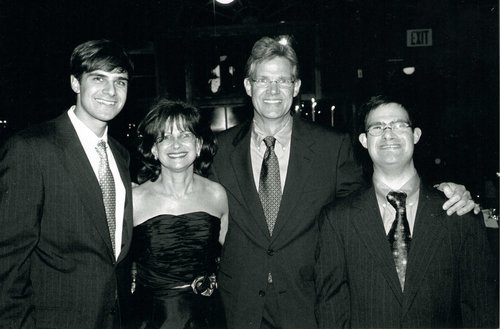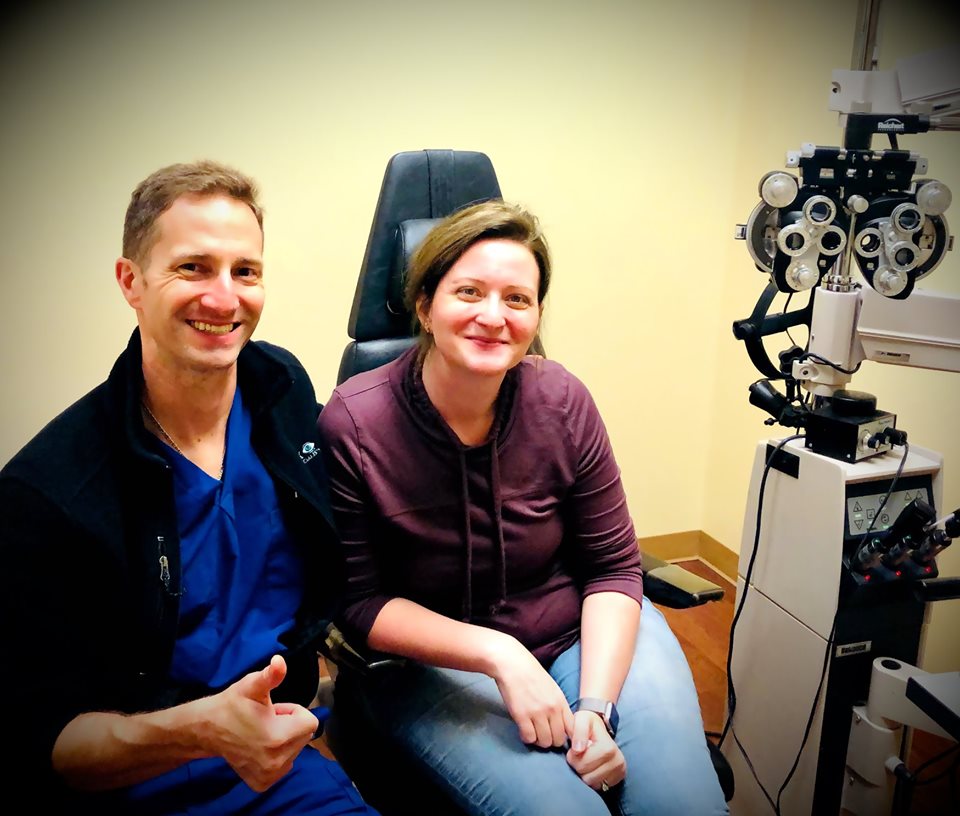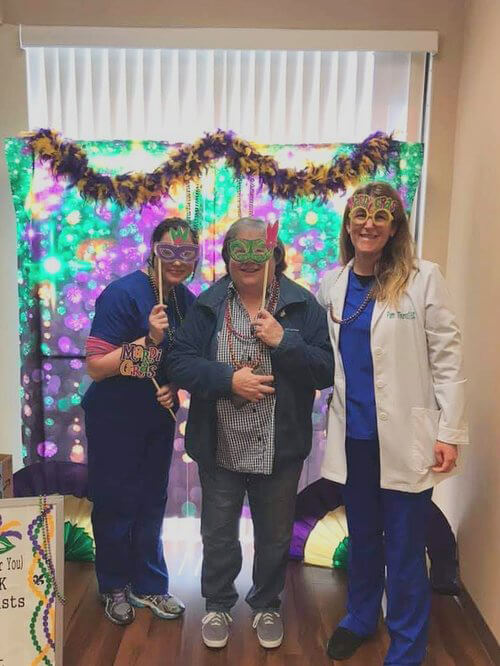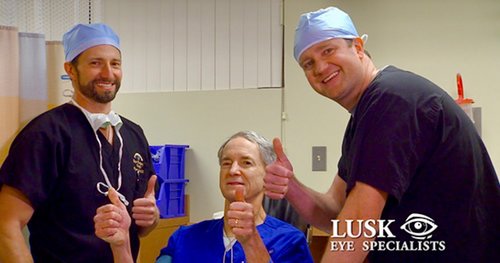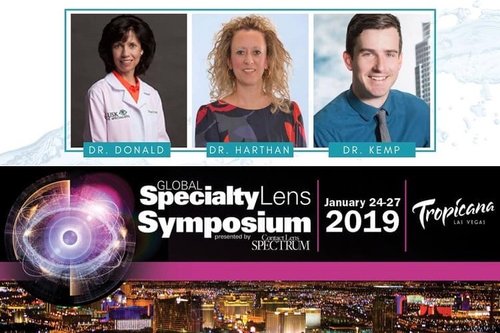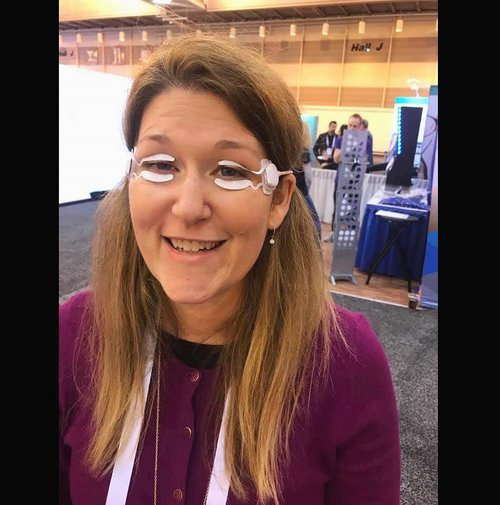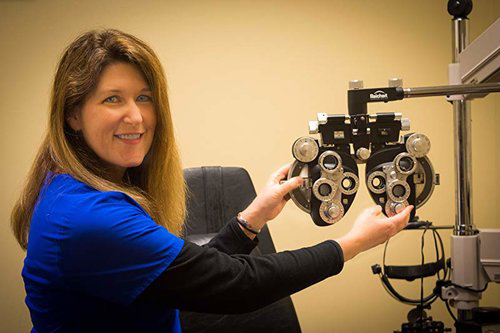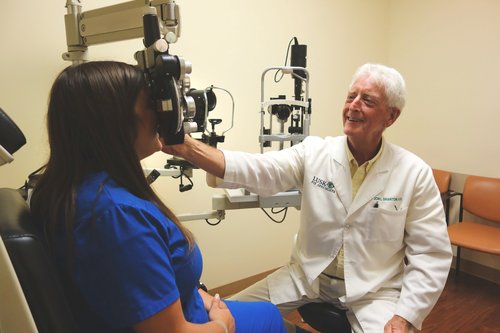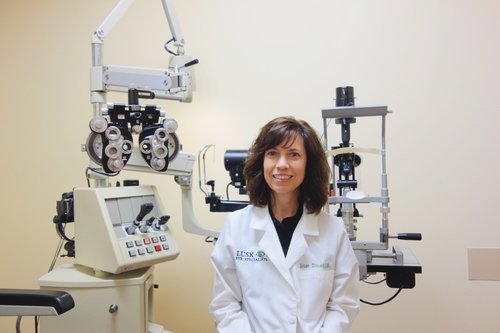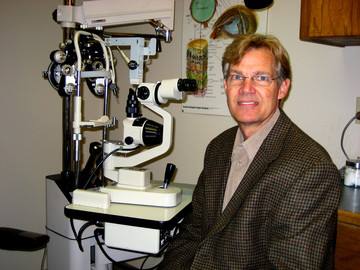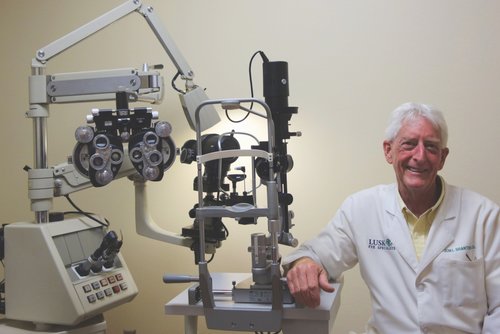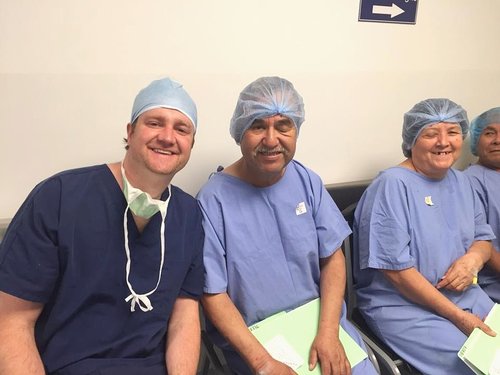Refractive Vision Issues in Shreveport-Bossier, LA
Some of the most common vision impairments we see at Lusk Eye Specialists are refractive vision issues — conditions that cause your eyes to have trouble focusing at certain distances. Because some refractive issues have different causes but the same symptoms, it may be hard for you to determine for yourself which condition you have, let alone what the best solution may be.
It’s important to us at Lusk Eye Specialists that our patients have answers to every question about their eye care. Below, you can find some information about the most common refractive vision issues and the available treatment options to help improve or restore your vision.
Common Refractive Vision Issues
Most refractive vision issues involve either your eye’s cornea — the clear, frontmost layer of the eye — or its lens, a clear tissue behind the pupil. The cornea and lens work together to precisely focus (“refract”) light onto your retina, which interprets those images and sends signals to your brain that allow you to see. The more accurately that light is focused onto your retina, the clearer and sharper your vision will be. Refractive errors occur when the cornea is unable to accurately focus light.
Myopia (Nearsightedness)
The most common vision-impairing condition in those under 40 years old, myopia, or nearsightedness, affects over 25% of the world’s population. When your eyeball is too long, light gets focused onto a point slightly in front of your retina, rather than on the retina itself. This will make further objects appear blurrier.
Myopia can make everyday activities, like driving, more difficult. With nearsightedness, you won’t be able to see well into the distance to orient yourself or read signs. Trying to see faraway objects without vision correction may lead to eye strain, fatigue, and headaches. Myopia typically starts its progression during childhood.
Hyperopia (Farsightedness)
Hyperopia, or farsightedness, is the opposite of myopia: rather than your eyeball being too long, it’s too short. This focuses light onto a point slightly behind your retina, and makes it hard to see clearly up-close.
Reading, operating machinery, and even holding a conversation with someone face-to-face can be challenging when you struggle with hyperopia. Like with myopia, attempting to use nearby vision without proper correction can strain or tire your eyes, and cause headaches.
Astigmatism
Unlike myopia and hyperopia, astigmatism can be caused by either your cornea or your lens being irregularly shaped. These are called corneal astigmatism and lenticular astigmatism, respectively. In the most common type of astigmatism, the cornea is oval shaped instead of round, leading to poor vision at both near and far distances. Nearly all tasks that require vision are more difficult with astigmatism, and night vision generally becomes impaired as well. The typical symptoms associated with using impaired vision — headaches, eye fatigue, and eye strain — are all caused by astigmatism as well.
Presbyopia
As you age, your lens naturally becomes less flexible, which makes it harder for your eyes to focus in on nearby objects. This natural process is called presbyopia, and starts to affect most people around age 40. Presbyopia is a progressive condition that makes reading and up-close tasks more difficult, and is extremely common in older adults.
Refractive Vision Treatments at Lusk Eye Specialists
There are many refractive issues, and many degrees of severity for those issues. That’s why the team at Lusk Eye Specialists finds it so important to offer a variety of advanced vision correction options, so we can account for the specifics of your condition when we choose a solution with you.
There may be multiple advanced and highly effective solutions available for your vision correction, and we’re proud to be able to help you determine the best one for your eyes.
Laser Vision Correction: LASIK, PRK
LASIK and PRK are two laser eye surgeries that have grown immensely in popularity over the last few decades, and we’ve been proud to stay on the cutting-edge of the disciplines. LASIK and PRK both precisely reshape the cornea in slightly different ways; LASIK yields great results, but not everyone will be an ideal candidate for it. For example, PRK is better for patients with thin corneas or stronger prescriptions.
These procedures can be used to treat myopia, astigmatism, and mild cases of hyperopia. In some situations, the cornea can also be slightly altered to adjust for the effects of presbyopia.
Clear Lens Extraction (CLE) & Refractive Lens Exchange (RLE)
CLE/RLE are two names for the same procedure, which involves the replacement of the eye’s natural lens with an artificial intraocular lens (IOL). Essentially, CLE/RLE is cataract surgery — a procedure our team performs on over 1,000 eyes every year — without the presence of a cataract.
Depending on the IOL implanted during the procedure, CLE/RLE can improve lens-based refractive issues like lenticular astigmatism and presbyopia, and accommodate for corneal astigmatism, myopia and hyperopia. CLE/RLE has the added benefit of protecting you against cataracts, which IOLs cannot develop.
Implantable Collamer® Lens (ICL)
Visian ICL is effective at improving myopia at nearly any severity, and some forms of astigmatism. It’s similar to CLE/RLE, but rather than removing the eye’s lens entirely, a high-tech Implantable Collamer® Lens (ICL) is placed between the iris and the natural lens. Due to the nature of the procedure, it’s also entirely reversible and repeatable: the ICL can be removed or exchanged if your vision changes.
Corrective Eyewear: Glasses and Contact Lenses
While we’re endlessly proud of our surgical team and surgery options, some patients with more mild refractive vision errors are happy to get by with a simple pair of glasses or shipment of contact lenses. Various lenses for both glasses and contact lenses can correct for most refractive errors, but many patients prefer the long-term convenience offered by refractive surgery.
Refractive Vision Issues at Lusk Eye Specialists
Refractive vision issues can be complex, forcing you to navigate an array of different conditions and surgical procedures. At Lusk Eye Specialists, we’ll help make it a little simpler for you. With our highly-experienced team of eye surgeons and eye doctors, our state-of-the-art surgical solutions, and our compassionate, patient-oriented care, we can help you explore your options and figure out how we can get your eyesight to the best place it can possibly be.
To learn more about refractive vision issues and their treatment options, call (318) 222-5555 or request an appointment.




